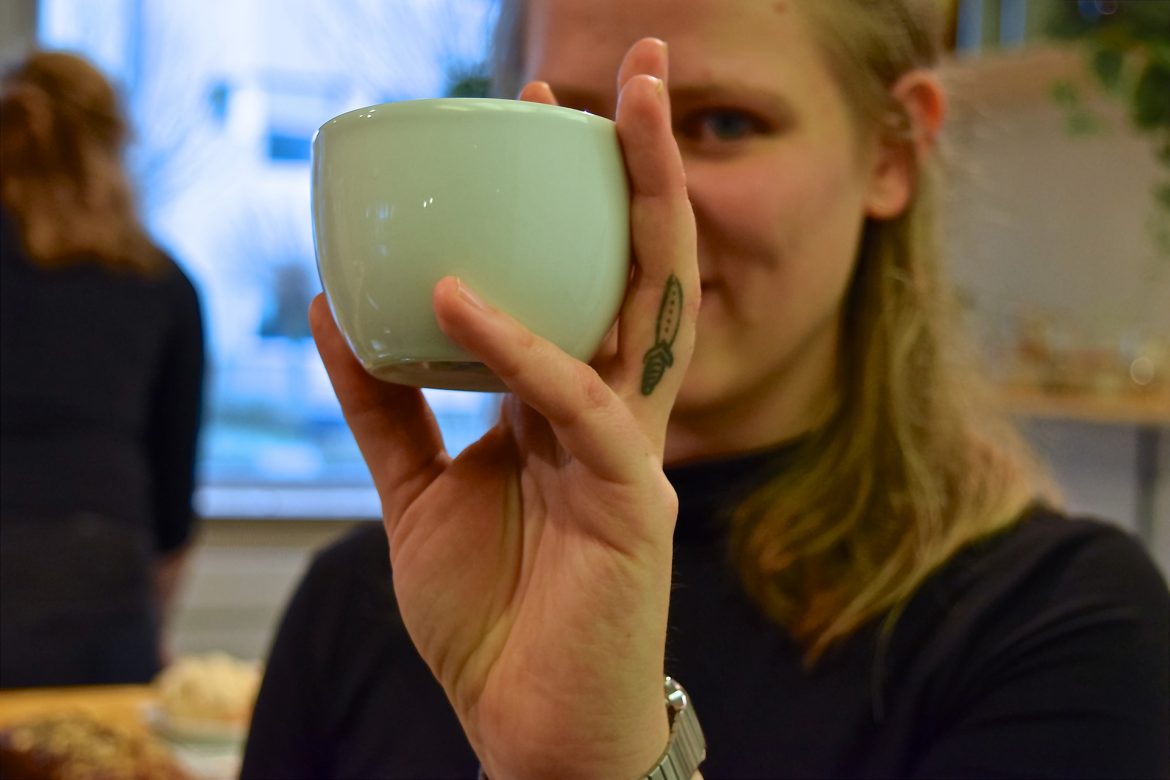
March 2018 will mark Dagger Coffee’s one-year anniversary, and the month also gives proprietor Dagmar Geerlings a third chance to compete in the Dutch Barista Championship. After placing fifth in 2015 and second last year, a third win would be especially gratifying.
Whether or not she wins, Geerlings appreciates that her very decision to compete led to Dagger Coffee, which has been providing another kind of steady, satisfying performance arena.
When Geerlings originally contacted De Stadstuin, a company converting vacant buildings into coworking hubs, she was simply seeking a spot to prepare for the competition. “Hi, I’m looking for a space to practice, and I need to build up a bar,” she told them at the time. “They said, ‘You know what? We’re actually looking for a hospitality partner for a new venue. Would you like to open a shop?’”
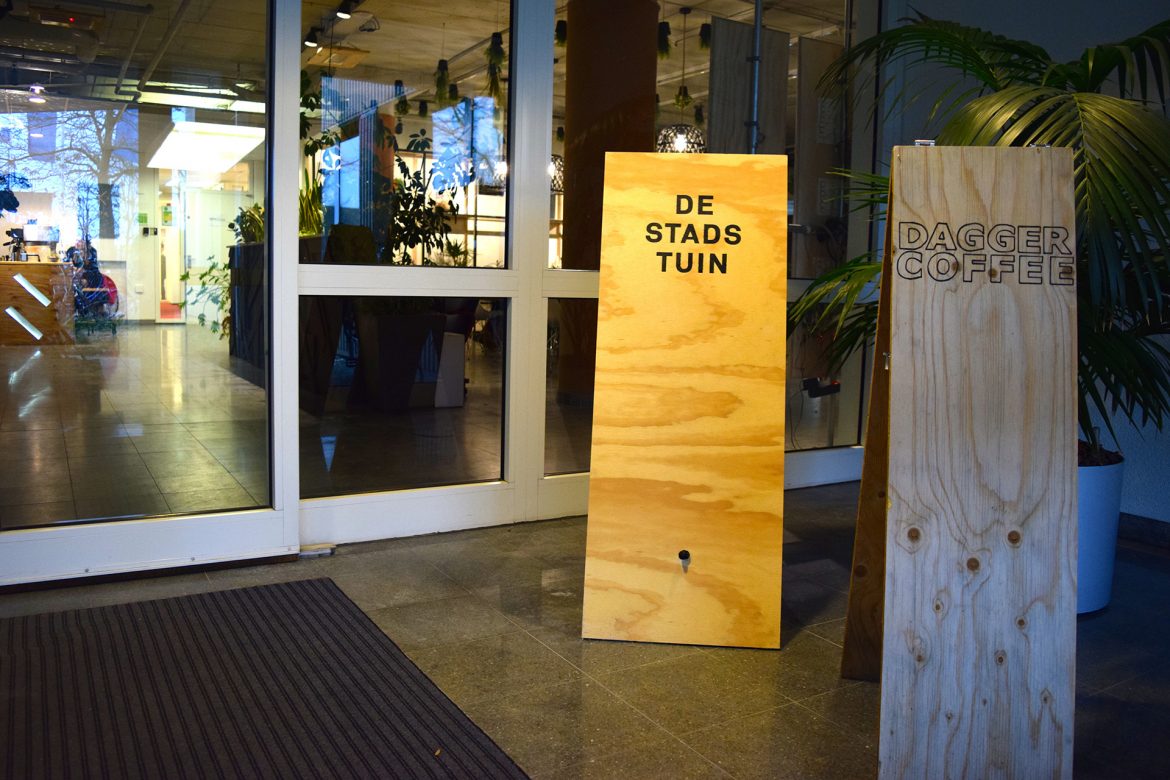
Today Dagger Coffee occupies a big-windowed corner of the lobby at De Stadstuin 500. With help from friends, Geerlings built the two bars that anchor the alcove. The sturdy wood structures appear utilitarian, with a pattern of rectangular cutouts cheerfully illuminating their facades. Stools offer guests front-row views of a two-group La Marzocco Linea Classic and a Victoria Arduino Mythos One, as well as whiffs of the baked goods. Toasties and soups are on the menu too, and a Moccamaster stands nearby (pour-overs are in the pipeline).
Promo postcards dub the place a “coffee paradise” on “the islands of Utrecht,” a nod to the district, which is called Kanaleneiland because the area is bordered by canals. However, insularity—of a different type—is something Geerlings has grappled with.
“My first year was awful,” she says, reflecting on her Dutch Barista Championship debut. “It was really stressful, and I was kind of doing it alone. You’re not really alone, but there was a point when I was in the tram on the way to the venue… sitting in the tram with my grinder.”
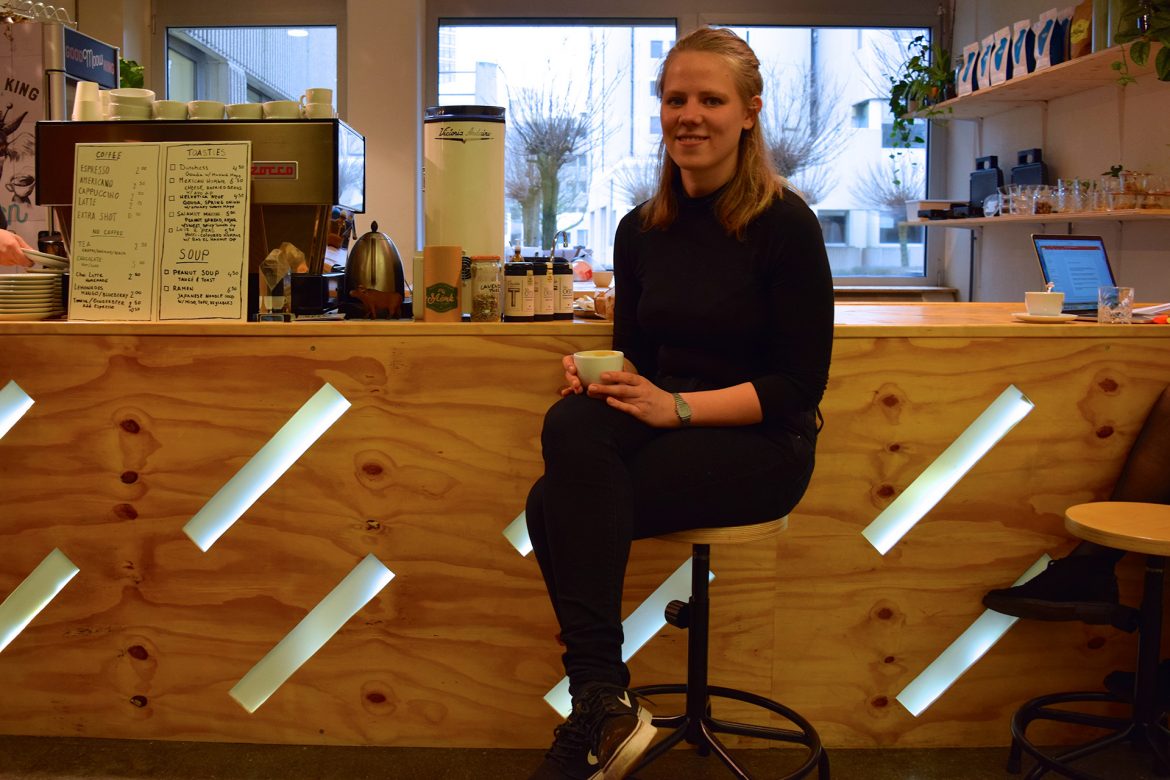
“It was horrible, and then I said I was never going to compete again,” she adds. “But then I heard Cerianne’s talk.” As a 2016 fellow, Geerlings attended Re:co Dublin, where Cerianne Bury gave a presentation expanding on research she told Sprudge about the year before. Bury discussed factors that might be contributing to the dearth of women coffee competition winners, including how much and what kind of support female participants sought and received.
“It just spoke to me. I was like, I’m one of those women—I’m the one that never asks for help,” Geerlings says. “I thought, OK, so I know women just don’t compete and they don’t ask for help.” The facts motivated her to act. As she puts it, “I just started asking people for help and enrolled in the competition.”
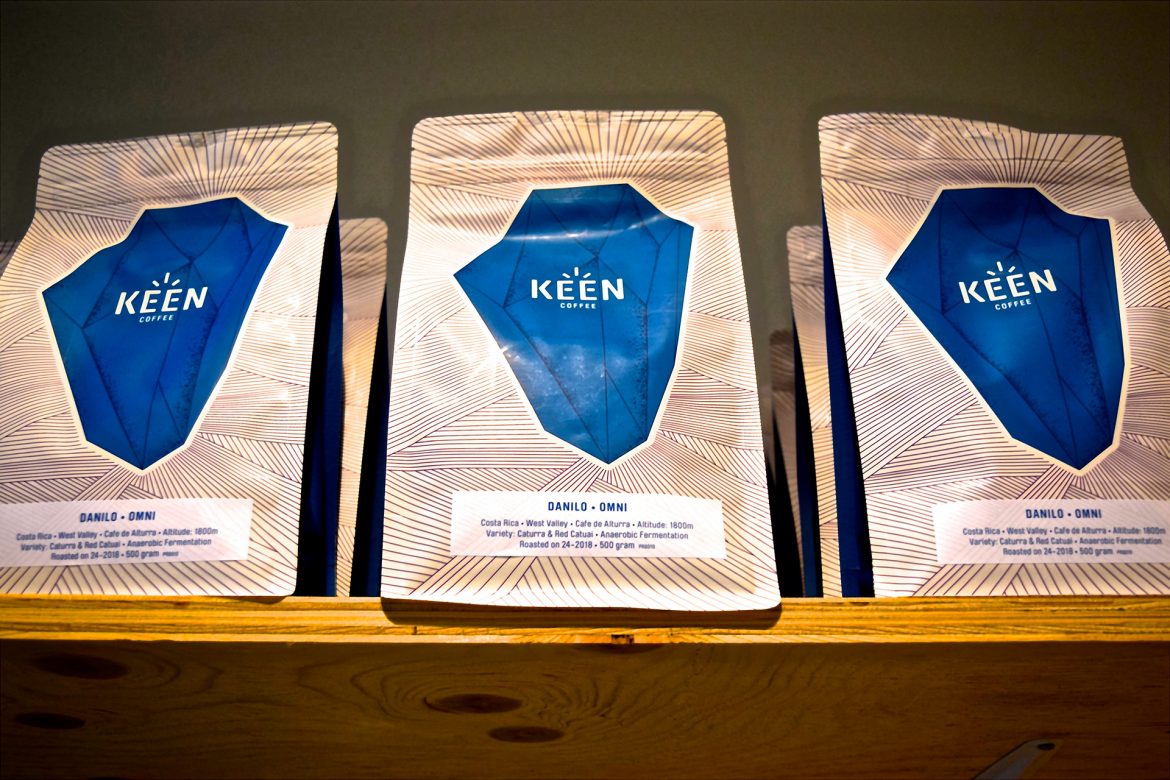
Her 2018 team includes Rob Kerkhoff and Bonne Postma from Keen, the Dutch roasters that fully supply Dagger Coffee; Sybilla Jimmink, a barista at Back to Black, one of Amsterdam’s few women-owned specialty cafes; and perhaps her most easily tapped source of support, “a girl squad.” United by professions in the industry and a WhatsApp group, its members are Geerlings, Anouk Rodenburg, Marlous van Putten—this year’s two female Dutch latte art finalists—and Farrah Tan, owner of The Daily Grind and the only other woman among this year’s six Dutch barista finalists.
Now 26, Geerlings began her career in Utrecht, working part-time with the team behind 30ML Coffee Roasters. After graduating from university, she spent a year abroad and was hired by Seven Seeds in Melbourne. It was as much a crash course in Antipodean cafe expediency—“in the Netherlands there are no crammed coffee shops,” she insists—as it was an official barista baptism.
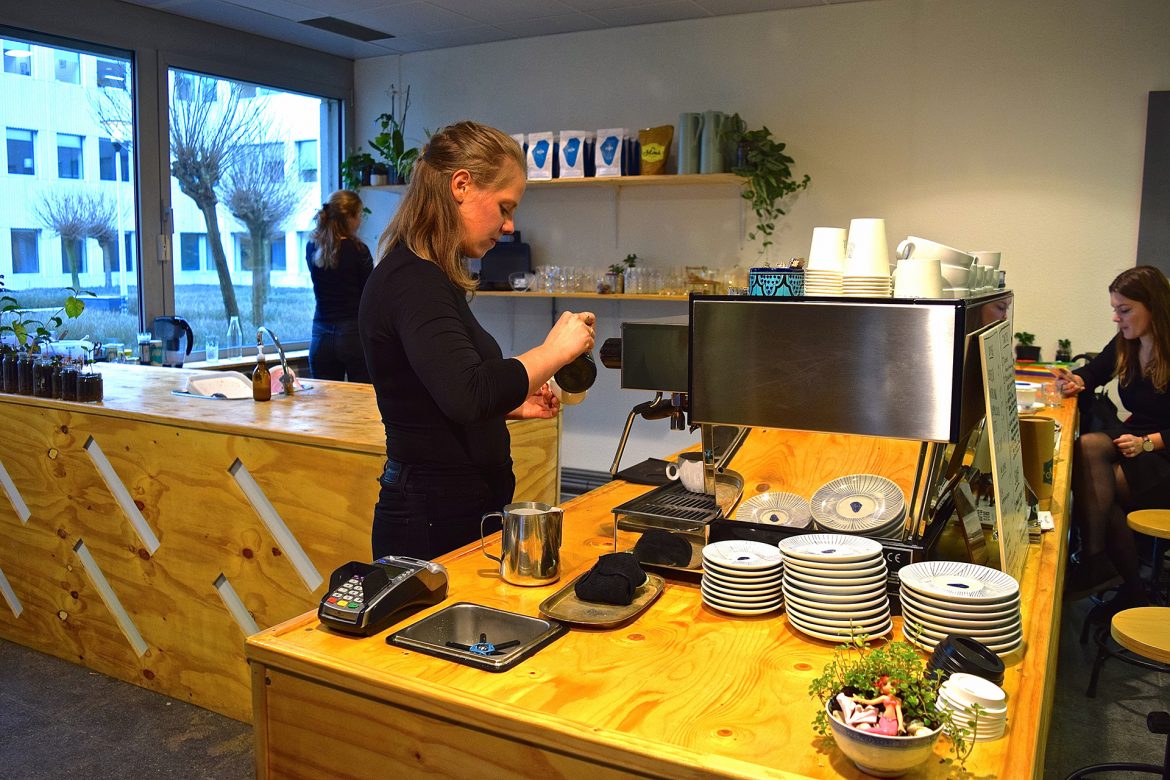
“On my first workday at Seven Seeds, the guys were like, ‘OK, Dag—so what’s your Australian name?’” she says, laughing. “And that quickly turned into ‘Dagger.’”
Once repatriated, Geerlings found a barista job at Australian-run roaster Lot Sixty One in Amsterdam. Later she worked at Headfirst, which 2016 World Barista Championship sixth-placer Lex Wenneker and 2017 Dutch AeroPress champion Jonatan Scheeper operated until they had to shutter the business in 2015. Along the way, she received a master’s of science in media technology. Her graduation presentation was titled “Representing Flavors with Sound: Using Combinations of Sinewaves to Represent Acidic Flavors.”
On the topic of acidity, fermentation features prominently in Geerlings’s competition presentation. Her coffee is Keen’s Danilo, an anaerobically fermented Caturra and Red Catuai from Costa Rica. The signature drink contains coffee kombucha, currently being perfected in her studio apartment (a heated hamster cage has proven a nurturing habitat for SCOBY experiments, she notes).
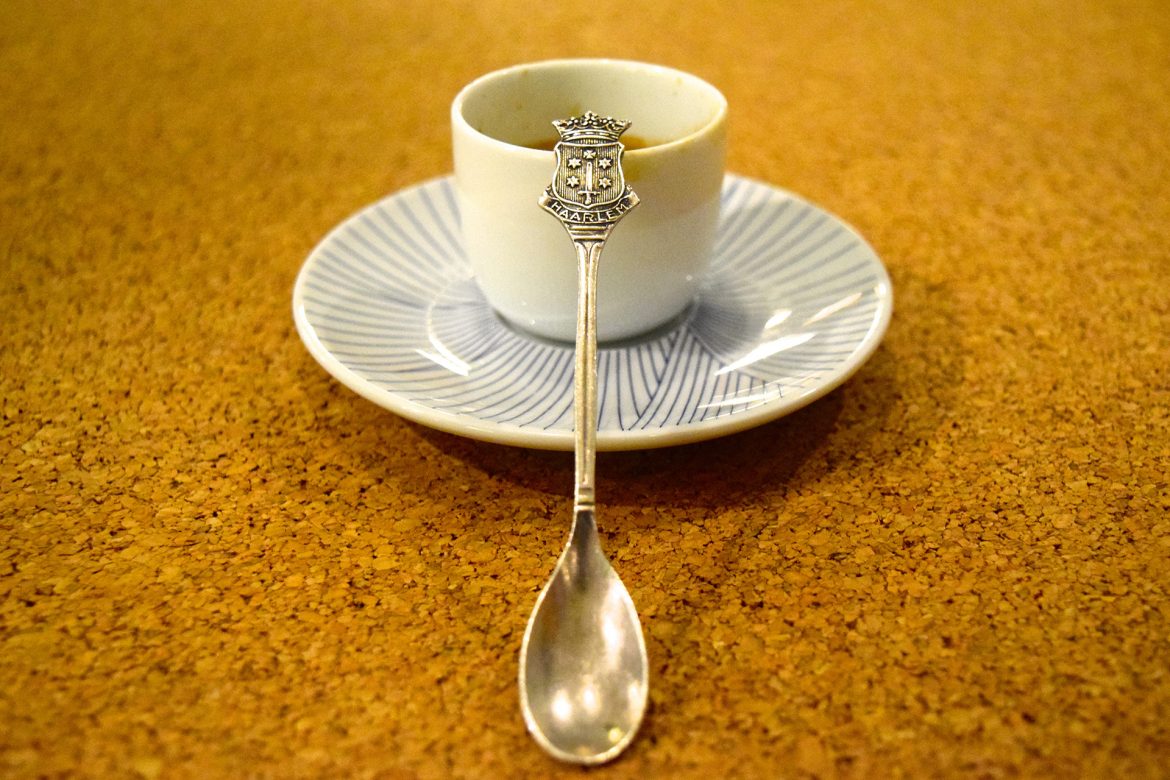
Back in the lobby of De Stadstuin, there are potted plants everywhere. They surround the communal tables with the “city garden” sensibility suggested in the building’s name. Geerlings has brought her personal touches to the atmosphere: books, magazines, a snow globe collection, and, least expectedly, decorative spoons served alongside cups of Dagger Coffee. If toothpick umbrellas whet tropical fantasies among the holiday-starved, these little ladles stir domiciliary comfort in the hearts of homesick urban nomads. Some are her travel souvenirs (the favorite is from Alberta, Canada, beloved for its nature and Calgary’s Monogram Coffee), though many were inherited from someone in her, arguably, proto girl squad.
Speaking of their 86-year-old donor, Geerlings says, “When she first came into the shop, she was like, ‘Oh, my spoons,’ and I was like, ‘Yeah, Granny, those are yours.’ She was like, ‘Do you need more?’ And I’m like, ‘Yeah. Most definitely.’ ”
Dagger Coffee is located at Europalaan 500, Utrecht. Visit the official website and follow them on Facebook and Instagram.
Karina Hof is a Sprudge staff writer based in Amsterdam. Read more Karina Hof on Sprudge.
The post Staying Sharp: How Utrecht’s Dagger Coffee Was Born Out Of Competition appeared first on Sprudge.

